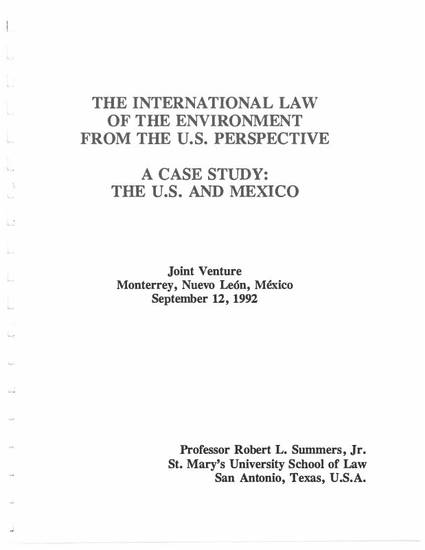
The subject of public international law is vast, rich and varied, thus offering the potential to explore many interrelated topics ranging from the lofty philosophical precepts of positivist and naturalist thought to the technical intricacies of international business transactions. Many of these topics are also historically relevant to the long and often inclement history of Mexican-U.S. relations. These include the law of war, peace and neutrality, self-determination, territory, recognition, and diplomatic and consular privileges and immunities. Regrettably, the allotment of time and space for the subject of public international law in the Joint Venture Program does not allow discourse on these topics, but instead demands a different, more efficient and more timely focus.
The direction of this paper is therefore aligned with some of the most critical issues of international law confronting Mexico and the United States in today's diplomatic context, which is marked by singularly positive and mutually supportive relations. These issues center on a relatively new concern to the international community, that is, the environment. The urgent preoccupation with environmental protection must inevitably be weighed against the frequently conflicting but equally vital need for economic development. This conflict is particularly acute at present because critical trade issues are now being vigorously debated during deliberations about the proposed trilateral North American Free Trade Agreement (NAFTA) between Mexico, the U.S. and Canada.
